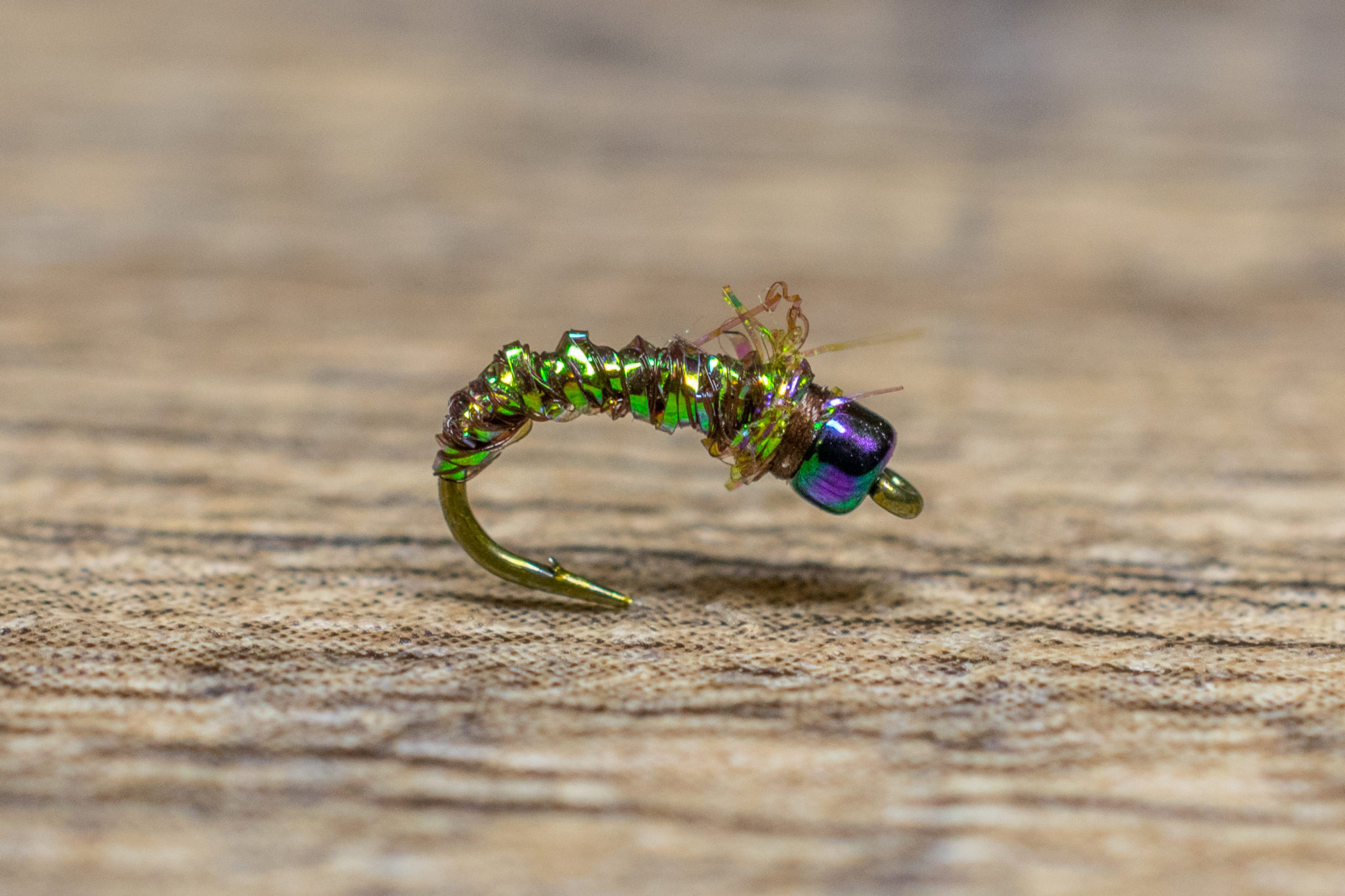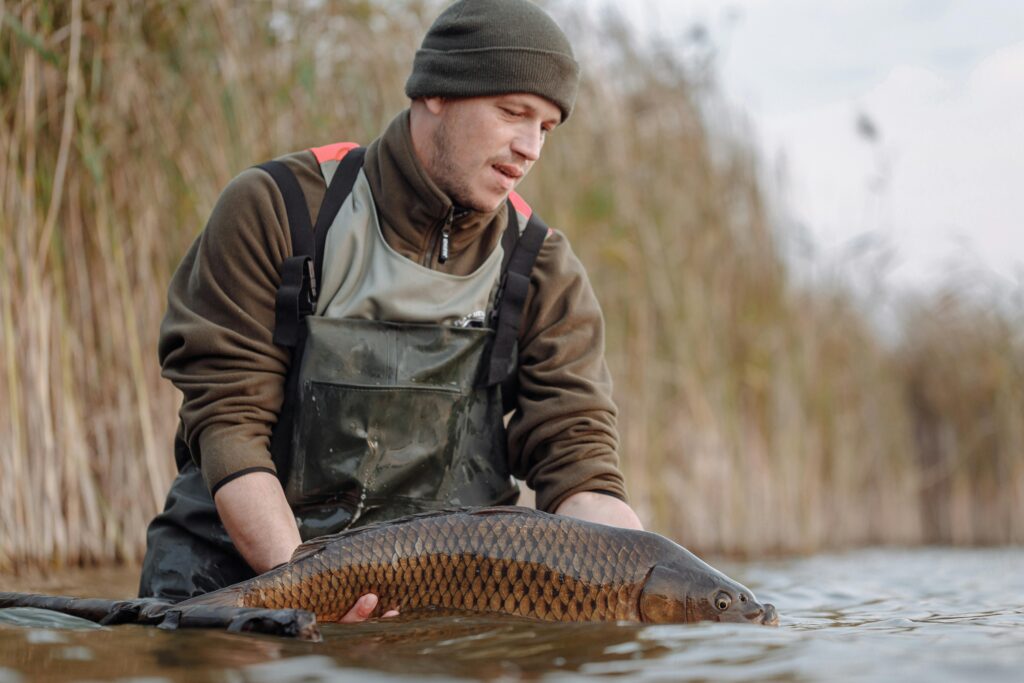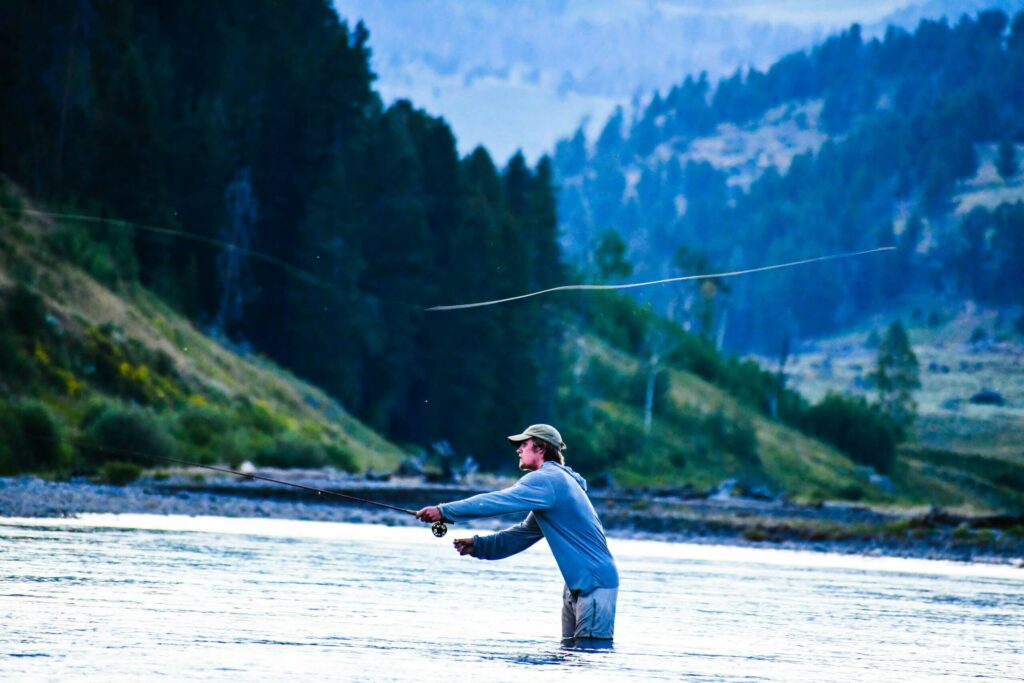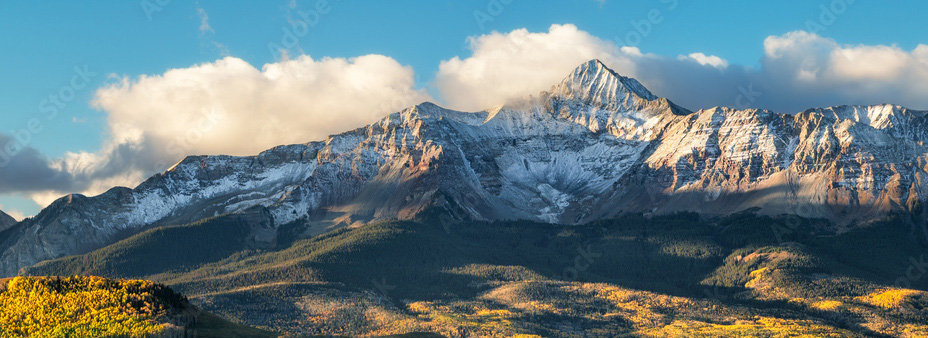When it comes to fly fishing, the fly types can essentially be broken down into two categories, Wet Flies and Dry Flies. Wet flies resemble insects that grow and live below the water surface before hatching and floating to the surface. They can also imitate larger creatures such as crawfish, leeches, and smaller fish that are found in streams and rivers. Dry flies represent insects that fish feed on that land on top of the water. Now that you know the differences between the flies here are some pros and cons of each.

Adams Dry Fly | Image Courtesy of Tightlinevideo
When most anglers begin fly fishing they start out with wet flies. There are a number of reasons for this. The first being that wet flies are simply easier to cast. When fishing with a dry fly, you want to make it land on the water perfectly so that it looks as natural as possible and the fish has no idea that fly is a fraud. When using a wet fly you are able to make plenty of mistakes because the fish you are targeting will usually be much deeper in the water and will not see the fly until after it is well beneath the surface. The fish in deeper water also feel safer. These relaxed fish are not as cautious and tend to go after your fly more often. Fish spend much more time eating food sources under the water (about 80%) than eating food sources above the water as well.

Minute Midge | Image Courtesy of Tailwater Junkie
Even though it is a little more difficult, dry fly fishing usually tends to be a bit more exciting. The first big reason is that you get to see the fish take the fly from the surface of the water and know when to set the hook. It can be a little more difficult choosing what fly to use. If you choose a fly that is not currently hatching, the fish will usually recognize this and disregard your fly but take every other insect off the top of the water. The challenge is what makes this type of fishing exciting though! When you do start catching fish with a specific dry fly and seeing trout strike and fly out of the water, it is one of the greatest things about fly fishing and will keep you coming back for more!
If you’re looking for more tips on fly fishing be sure to let us know and keep us in mind next time you’re looking to book a fly fishing trip!









